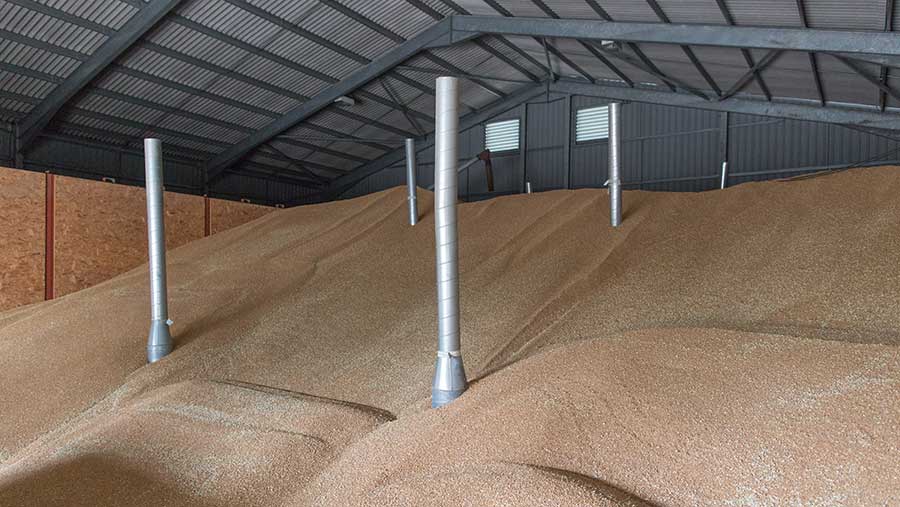Grain drying to remain eligible use for RHI
 © Tim Scrivener
© Tim Scrivener The government has decided against removing grain and crop drying as an eligible heat use under the non-domestic Renewable Heat Incentive (RHI) scheme.
The Department for Business, Energy and Industrial Strategy issued a consultation document last September that proposed tightening the rules surrounding the RHI to ensure it offers value for money.
It suggested removing all forms of “drying” as an eligible heat use because of concerns that some people were using inefficient drying practices in order to maximise RHI payments.
See also: Scots fight back at plans to stop drying under RHI
But a government response to the consultation paper, published last week, has confirmed that grain drying will continue to be an eligible use for the RHI.
“There is much less evidence of inefficient and uneconomical drying in these areas, but the government wanted to use this consultation to gather evidence on this point,” it said.
“The responses to the consultation did not suggest that there were systemic issues in these sectors and evidence was provided of the requirement to dry crops, including where renewable heat was replacing fossil fuel heating.”
Removal of wood-fuel drying
However, the government has decided to remove wood-fuel drying as an eligible heat use, other than where the renewable heat installation is replacing a fossil fuel heat source.
It will also remove the drying, cleaning or processing of waste as an eligible use and tighten the eligibility of swimming pools so that only swimming pools that are used for a municipal or commercial purpose receive non-domestic RHI support.
The Renewable Energy Association said while there were some positive aspects to the consultation, the rules needed to be open to change to make sure they did not stifle innovation.
‘Rules must be open to change’
Frank Aaskov, policy analyst at the Renewable Energy Association and Wood Heat Association, said: “We welcome the principle of limiting eligible heat uses to ensure the scheme is used responsibly.
“The central goal of the RHI is to drive down emissions from the heating sector in a cost-effective manner, and we must not lose sight of that.
“The RHI is a complex scheme and the new rules will need to be tested and be open to change to ensure innovative companies aren’t being punished.”
The new rules are expected to take effect from spring 2018.
However, they will only affect new applicants to the RHI scheme or existing applicants that are seeking to expand their capacity.
